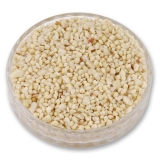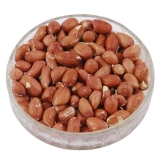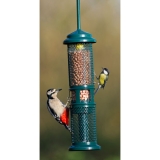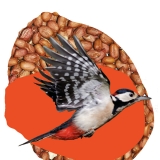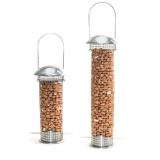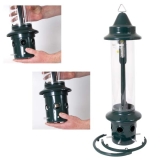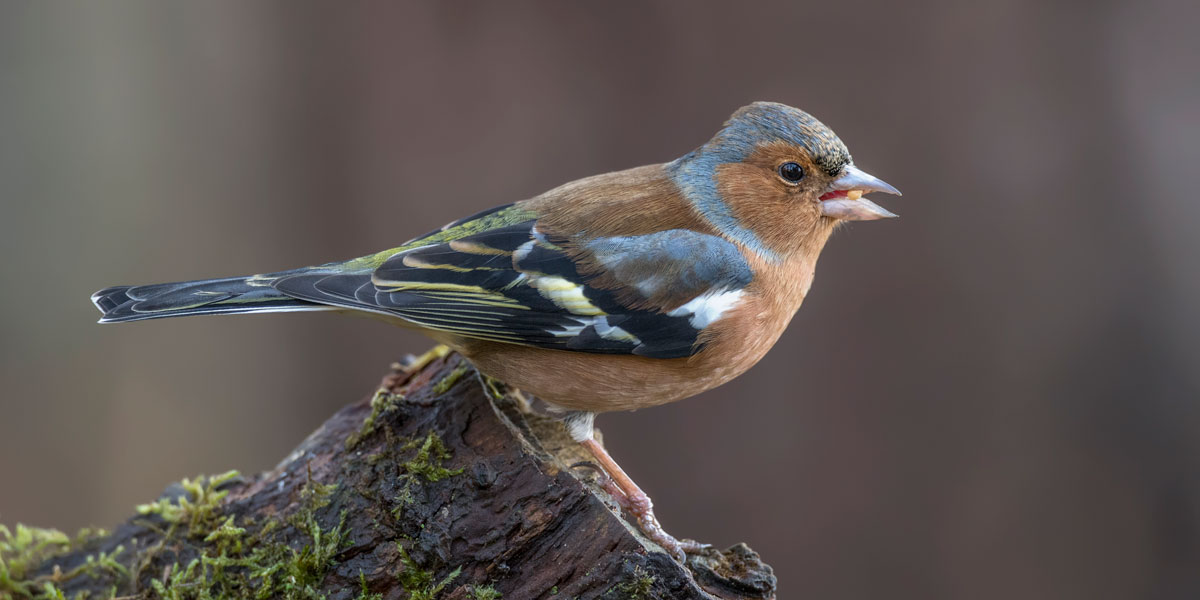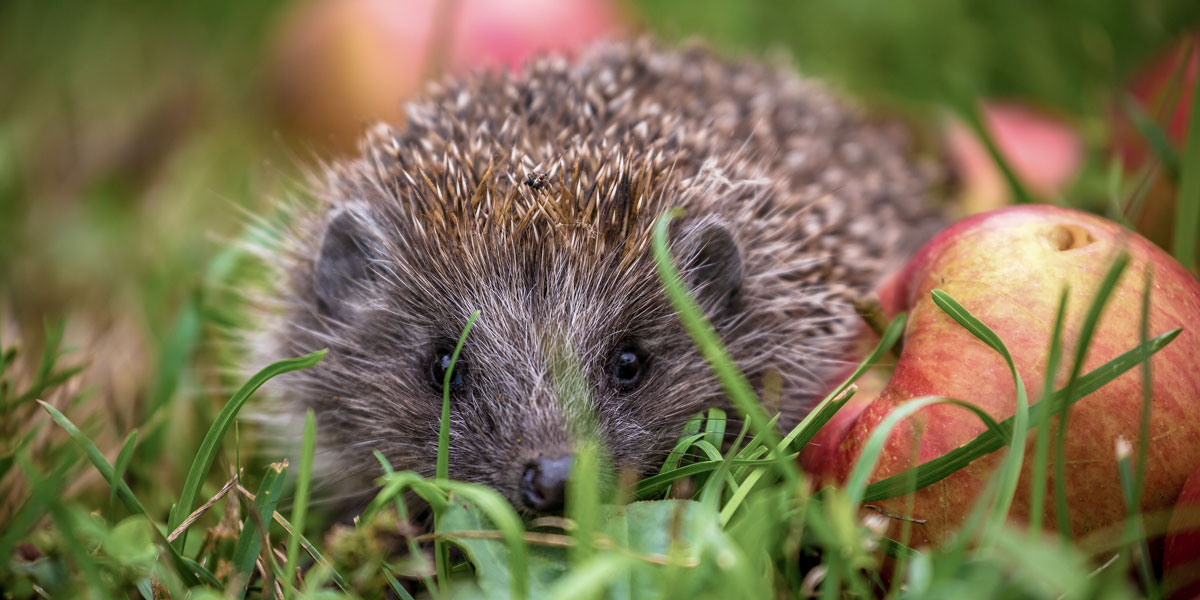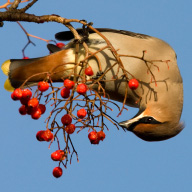Explore Our Garden Wildlife Blog
Browse or search by Category or Keyword below, alternatively click on any Tag to see related articles.
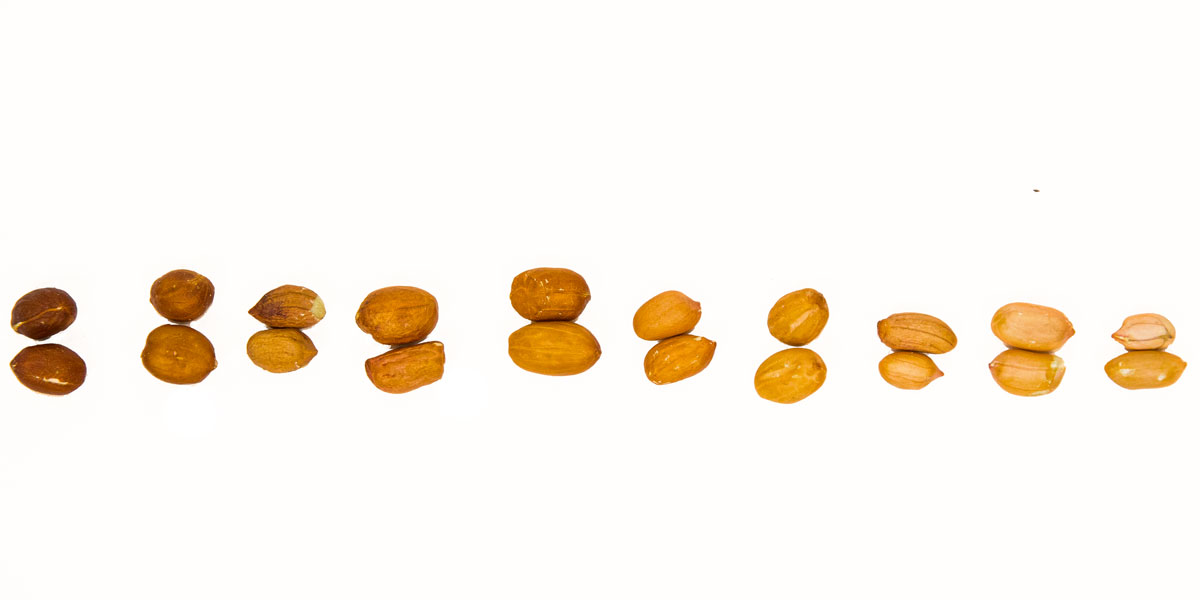

Which Birds Eat Peanuts & Are Peanuts Good For Birds?
By Ark Wildlife
9th February 2021
Last Updated: 12th April 2024
Feeding garden birds has been a national pastime for well over a hundred years here in the UK and throughout this time peanuts have been one of the main foods on offer.
Wild birds enjoy feeding on peanuts for good reason, although technically a ‘legume’ rather than a nut, peanuts offer an excellent balance of protein and oil, both required for energy and good health. Nowadays peanuts are being grown around the world in suitable climates and come in all shapes, colours and sizes.
Feeding Peanuts to Birds: What to consider
When considering feeding peanuts to birds, there are a few important things to consider.
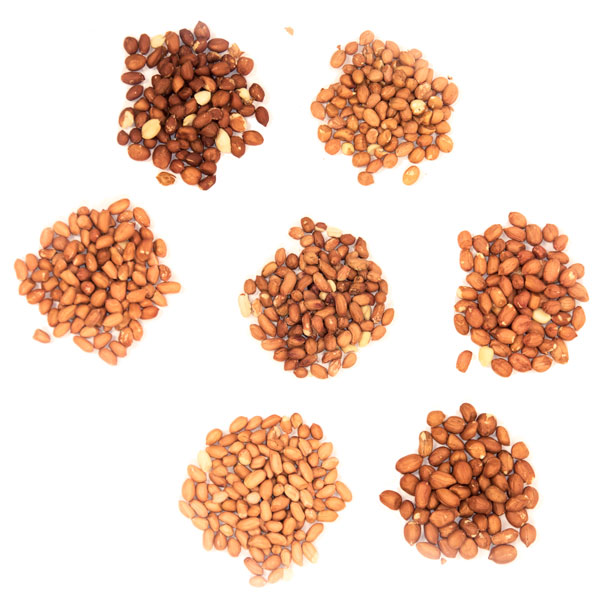
Aflatoxin – Peanuts are highly susceptible to mould during growth and storage. In particular, the fungus Asperillus Flavus which releases large quantities of aflatoxin, which is a highly toxic carcinogen when consumed by mammals and birds.
Harvest and Storage – Peanuts are a member of the pea family, rather than a true nut, and grow as an annual herbaceous plant. After flowering, the stalk continues to grow until the fruit head bends over and gets pushed in to the ground, where the pod swells and matures. At harvest time the whole plant is lifted and turned upside down. The peanut plants are then left to dry over three or four days to lose up to two thirds of their moisture content. If the ripening period is interrupted for any reason, mould can quickly contaminate the entire crop. Additionally poor storage and/or transportation can trigger contamination allowing moulds, including the aflatoxin producing fungus, to flourish and poison the crop.
Cultivation – Although native to South America, peanuts are now grown across many continents where hot climatic conditions suit them. The major growers of peanuts in order of volume of production are: China, India, USA, Nigeria, Indonesia and Argentina. Mankind has grown peanuts for food for many thousands of years, yet it’s only since the 19th century that it has become a staple food crop, previously being cultivated primarily for animal feed.
Cultivars – Each year new cultivars of peanut are being bred, but they all stem from four major families: Spanish, Runner, Virginia and Valencia groups. Each group and every new cultivar has its own particular properties – disease resistance, drought tolerance, size, taste, etc. Each attribute making them more or less suitable for different uses and cultivation in different climates.
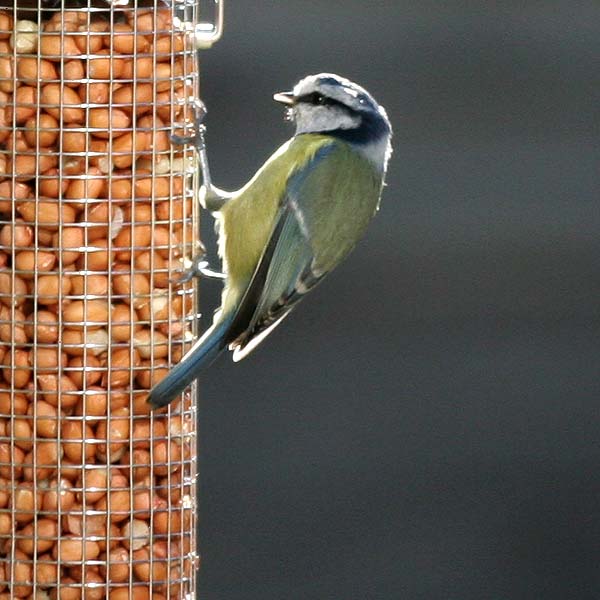
Which birds eat peanuts?
A wide variety of birds will eat peanuts if they are left out. Common garden birds that will eat peanuts include wrens, great tits, blue tits, woodpeckers, jays, doves and crows. If you leave peanuts out for the birds in your garden, make sure you place them well out of reach for other creatures as squirrels will also eat them. You can also use peanut bird feeders which allow birds to peck at the peanuts whilst avoiding the risk of choking.
Can birds eat peanuts in the shell?
Not all birds can deal with peanuts in shells, but larger varieties – such as jays, jackdaws, crows and magpies – will quite enjoy the challenge. For smaller birds – such as robins, sparrows and wrens – it can be safer to provide shelled peanuts, allowing them to get the goods quickly, before predators can pounce. Guardian bird feeders can also help smaller birds to eat without feeling intimidated by larger species.
If you do leave peanuts in their shells, there are ways you can make the experience more enriching for birds. String some together and hang them around the garden, or push them into holes in a tree or log.
Are peanuts good for birds?
Peanuts are an excellent food source for birds and you shouldn’t hesitate to leave them in your garden. They are easy to source and refill – just make sure they are unsweetened and unsalted. Peanuts are high in fat which means that they provide a lot of energy and calories, which is especially important during the cold months. Birds can store them away for winter if they need to.
Ark Wildlife source peanuts from a number of regions and therefore the size and colour of our peanuts will vary (just like apples in a supermarket). We select them on the basis of oil content, freshness and safety. We will only supply peanuts that have been tested nil detectable aflatoxin in the UK, so we can be entirely certain they have been grown, harvested and transported in a safe manner.
This is just one example how Ark Wildlife support the wildlife in your garden.
Related Internet Links:
Wikipedia – Peanuts
British Trust for Ornithology
Ark Wildlife is not responsible for the content of external websites






